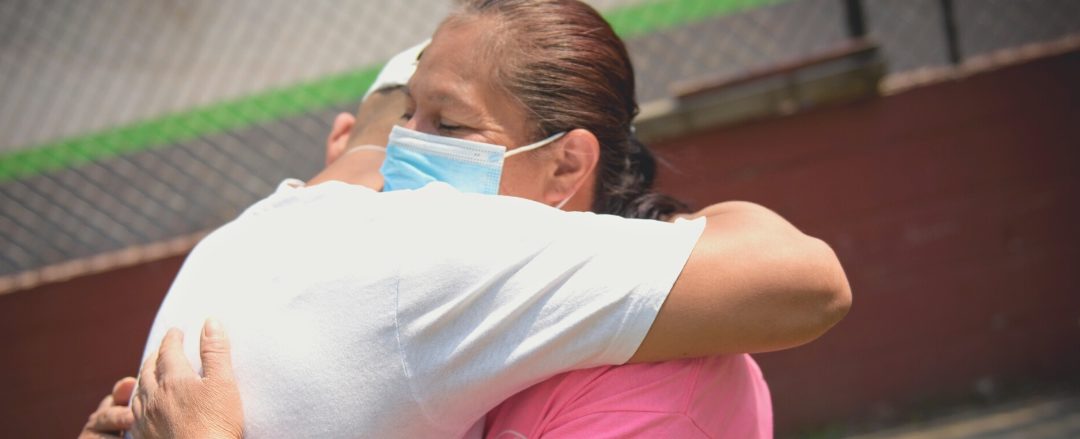Planning a visit to a detention center is often a difficult task for the parents of children in conflict with the law. Many of them come from poor communities that are very far from where the detention centers are located. Affording a trip to the detention center is not something they can easily contemplate.
On Sunday, August 21 a gathering was held for the families of the children living in the CERMI detention center, located in the fourth largest state of Mexico, Durango.
Two mothers traveled with their other children and one father traveled alone. Our Project Coordinator in Durango, Estefanía Acosta, gave information about JJAI’s projects and about the help we provide to families. She also distributed food and drinks to all attendees. Parents often bring food for their children during visiting days, but since they often cannot afford it it is very helpful when we are able to assist them this way.
It was a happy and fun time for the families while they ate pizza, cake and drank soft drinks. The parents participated in a workshop led by Melissa Hernández, PsyD. She led them through different activities where she was able to connect with them in order to get to know them, as well as the needs they have as a family, better.
These families are often stigmatized by society. All the processes that their children go through with the justice system are also suffered by them. It is common for parents to feel that they have failed when their children become involved with the justice system.
They are in a very vulnerable state and their low financial capacity to support their children usually leads to feelings of guilt, anxiety, sadness, anger, frustration and helplessness.
Their need to provide for the rest of their families also makes them make the painful decision of having to visit very sporadically or avoid visiting their children altogether.
A child who does not have a family nucleus or a support network to accompany him during his time in a detention center is usually a child with a greater possibility of developing depression, anxiety or even attempting against their own life.
On the other hand, a child who has the support and affection of their family during their penal process is a child with a greater possibility of a successful reintegration into society.
At the end of the activities with Ms. Hernandez, many parents felt overwhelmed by all the emotions they expressed, but they also felt great being able to communicate their feelings with someone who understands them, who does not judge them and who can provide them with tools to be able to develop a better relationship with their children. The parents returned very moved with their children and the first thing they did was hug them tightly.
Of the six children who were in the detention center at that time, only three of them were able to receive visits on this occasion. However, the other children were not segregated, but rather were included in this gathering and also had the opportunity to share food and meet the relatives of their peers.
It is our wish that in the future more families can participate in this type of experience, however the costs of transportation and food for families are usually high, so in order to provide this help to more families we require support through monetary donations to continue these activities.
We thank all the families that participated and we hope to soon be able to continue with more Family Reunifications in all the territories where we work.
Our Re-entry Services Project has the purpose of providing support to families once the criminal process of their children has concluded, however it is not possible for us to know their needs without first getting to know them personally and getting a more concise idea of the type of support they will require. This meeting allowed us to learn about the real needs of the families as well as the way in which it is most useful for them to receive this help.

